In the world of bathroom renovations, the unsung hero is often the humble shower pan. But not just any shower pan - I'll tell you about the detailed process of hot mopping a shower pan.
This essential component plays a pivotal role in waterproofing your shower, ensuring that your bathroom remains leak-free and pristine. It's a fascinating process, involving hot tar, asphalt paper, and a meticulous technique that's been honed over the years.
Whether you're a homeowner grappling with shower pan problems or a DIY enthusiast looking to understand the ins and outs of bathroom waterproofing, this article is for you.
We'll delve into the nitty-gritty of hot mop shower pans, from their composition to their installation, and even explore the digital aspect of hot mop services.
A hot mop shower pan is a waterproofing method that involves applying multiple layers of felt and hot asphalt to create a waterproof seal.
The process involves heating asphalt in a kettle and applying it between layers of felt using a large mop, hence the name "hot-mop".
As these layers dry, they meld together to form an impermeable waterproof seal. This reliable waterproofing method seals off your shower and bathroom floor, preventing water from leaking onto the subfloor.
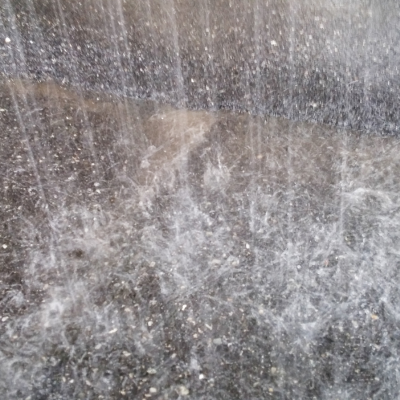
It ensures there is no water damage to your home and none of the musty smells that come with it.
The main components of a hot mop shower pan are asphalt and felt. The asphalt is heated until it becomes a hot liquid, and it's then applied between layers of felt. The felt is a type of heavy-duty paper, specifically asphalt paper, which is durable and resistant to water.
When the hot asphalt and felt layers are combined, they create a waterproof barrier that prevents water from seeping through. This barrier is what makes the hot mop shower pan so effective at waterproofing your shower.
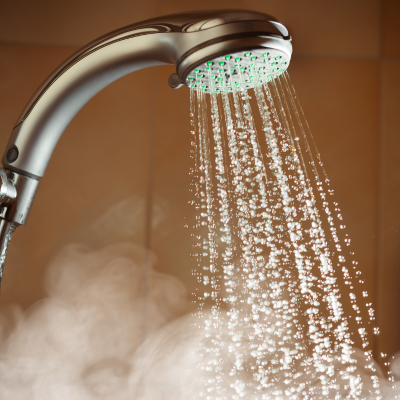
The importance of a hot mop shower pan cannot be overstated, especially in the context of bathroom waterproofing.
When you take a shower, most of the water runs down the drain, but some of it is absorbed by your tile and grout, sending it to the shower pan below your shower.
The hot mop shower pan method creates a reliable waterproof seal under the shower pan to prevent moisture from trickling into your floors and causing damage.
This method is considered optimal for waterproofing your bathroom floor, as it provides multiple layers of protection against all water leaks, helping to lower humidity levels inside your bathroom and reducing the risk of water damage to your fixtures and appliances.
Shower pans, while essential for any bathroom, can sometimes present problems that frustrate homeowners.
One common issue is leakage, which can occur due to cracks or gaps in the shower pan or improper sealing. This can lead to water damage in the bathroom, causing mold and mildew growth, damaging the floor and walls, and even compromising the structural integrity of the house.
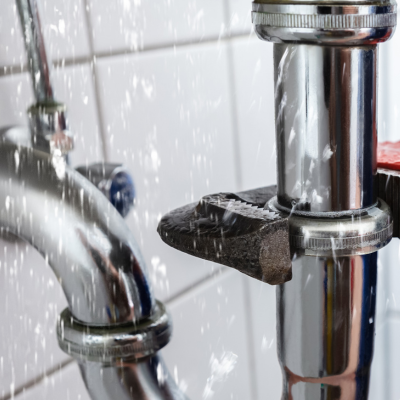
Another problem is the buildup of soap scum and hard water stains, which can make the shower pan look dirty and unattractive.
Lastly, a poorly installed shower pan can lead to uneven surfaces, causing water to pool in certain areas instead of draining properly.
Hot mopping, a process that involves applying layers of asphalt and roofing felt to create a waterproof barrier, can effectively address these common shower pan problems.
For instance, hot mopping can prevent leaks by creating a seamless, waterproof membrane that seals all cracks and gaps. This hot tar is resistant to the wear and tear of daily use, ensuring a long-lasting solution.
Moreover, the smooth surface created by hot mopping makes it harder for soap scum and hard water stains to adhere, keeping the shower pan cleaner.
Lastly, a properly hot-mopped shower pan ensures an even, sloped surface that directs water toward the drain, preventing pooling.
To illustrate the effectiveness of hot mopping, let's consider a real-life example. A homeowner was struggling with a leaky shower pan that was causing water damage to the bathroom floor and walls.
After trying various solutions, they decided to try hot mopping. The process involved applying several layers of hot tar and roofing felt, creating a waterproof barrier that sealed all cracks and gaps.
After the hot mopping process, the leaks stopped, and the homeowner was able to avoid further water damage, demonstrating the effectiveness of this method.
In another example, a commercial building with a flat roof was experiencing significant leaks during heavy rain.
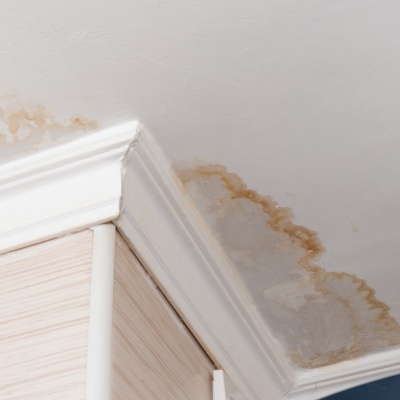
The building owner decided to use the hot mopping method on the roof, similar to how it's used in shower pans. The hot mop application created a durable, waterproof layer that effectively stopped the leaks, saving the owner from costly water damage repairs.
This example shows how the principles of hot mopping can be applied beyond shower pans, providing effective solutions for a variety of waterproofing needs.
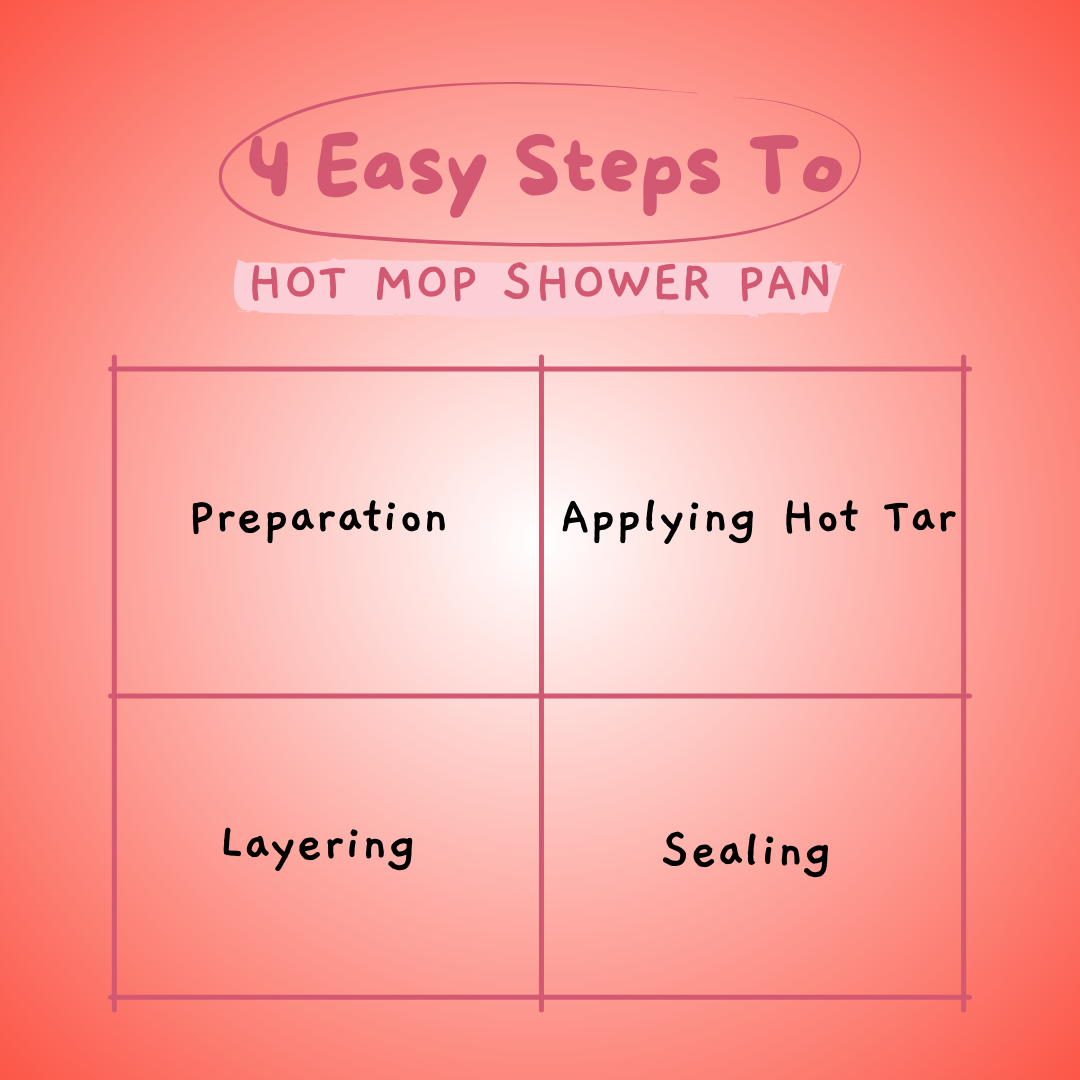
Hot mopping a shower pan is a process that requires precision and attention to detail. Here's a step-by-step guide:
Even with a detailed guide, mistakes can happen. Here are some common mistakes and how to avoid them:
Here are some additional tips and best practices for successful hot mopping:
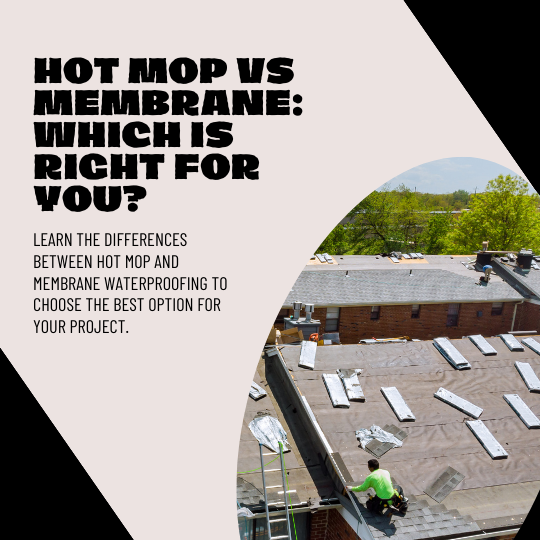
The membrane method for waterproofing a shower pan is a popular choice among homeowners and contractors.
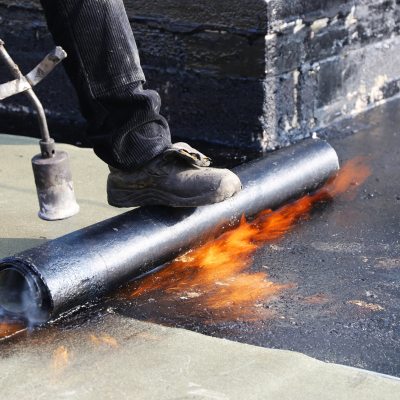
This method involves the use of a waterproof sheet, often made of CPE (Chlorinated Polyethylene) or PVC (Polyvinyl Chloride), which is laid over the shower pan area.
The membrane is then bonded to the surface, creating a watertight seal that prevents water from seeping into the underlying structures. The membrane method is known for its accessibility, as the materials are readily available at tile and retail outlets.
However, installing a membrane requires a certain level of skill and patience, especially when it comes to folding the inside corners of the sheet goods and ensuring a proper seal around the shower pan drain.
When comparing the hot mop and membrane methods, both have their advantages and disadvantages.
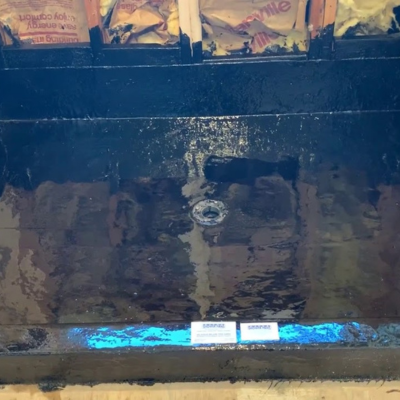
The hot mop method, with its layers of tar and asphalt paper, offers a robust and durable waterproofing solution. It creates a crisp, clean finish with no bulges or bumps, and it's bonded tightly to the wood, providing excellent protection for your shower pan.
On the other hand, the membrane method, while less labor-intensive, requires careful installation to ensure a watertight seal.
Mistakes in the installation process, such as improperly folded corners or inadequate bonding, can lead to leaks and water damage.
Therefore, the choice between the two methods often comes down to the skill level of the installer and the specific requirements of the project.
Choosing between the hot mop and membrane methods for waterproofing your shower pan depends on several factors. If you're looking for a robust and time-tested method and have access to skilled labor, the hot mop method might be the right choice for you.
However, if you prefer a method that's more readily available and potentially easier to install, you might opt for the membrane method. Regardless of the method you choose, it's crucial to ensure the installation is done correctly to prevent any future water damage.
Always consult with a professional or conduct thorough research before making your decision to ensure you're choosing the best method for your specific needs.
The digital revolution has not left any industry untouched, and hot mop services are no exception.
Technology has a significant role in modern hot mop services, enhancing efficiency, accuracy, and customer experience. One of the key technological advancements in this field is the use of specialized apps.
For instance, the "Local Hot Mop" app, available on Google Play, is designed specifically for hot mop services.
It caters to both residential and commercial clients in Los Angeles County, providing a platform for users to access hot mop services for shower pans and balconies with just a few taps on their smartphones.
The digitalization of hot mop services brings numerous benefits to both service providers and customers.
For service providers, apps and other digital tools streamline operations, improve scheduling, and enhance communication with clients.
On the customer's side, digital services offer convenience and transparency. Customers can schedule services, track progress, and make payments all through a single platform.
This level of convenience and efficiency is unparalleled, making digital hot mop services a preferred choice for many.
As technology continues to evolve, it's expected to further shape the future of hot mop services.
Advancements in areas like artificial intelligence, machine learning, and the Internet of Things (IoT) could lead to even more efficient and personalized services.
For instance, predictive analytics could help service providers anticipate customer needs and schedule preventive maintenance, reducing the risk of leaks and other issues.
While it's hard to predict exactly what the future holds, one thing is clear: technology will continue to play a pivotal role in hot mop services.
Installing a hot mop shower pan involves several costs. The average cost to install or replace a shower pan is $900 to $2,300, with hot mop shower pans costing between $225 to $500 on average.
The cost of a hot mop shower pan can vary depending on the size, type, material, features, labor, and base type.
Labor costs to install a hot mop shower pan can range from $45 to $150 per hour. The installation process involves creating a watertight membrane with layers of hot tar and felt, which requires a certain level of expertise.
The cost of the shower pan itself can range from $150 to $950, depending on the size and material. Extra features like benches, trench drains, and curb variations can increase costs by $100 to $600.
Several factors can affect the cost of installing a hot mop shower pan. The drain location can impact the cost, with center drains being standard and linear and square drains increasing the cost.
The material of the shower pan can also affect the cost, with high-end materials driving up the cost but typically being more durable.
The size and shape of the shower pan can impact the cost, with custom sizing and curved custom bases costing more than the standard size and shape. The weight of the material may require subfloor reinforcement and multiple professionals to complete the installation, which can increase labor costs.
To save money on the installation of a hot mop shower pan, consider the following tips:
Remember, while it's important to consider cost, the quality of the installation is crucial to ensure a long-lasting, leak-free shower pan.
Despite the popularity of hot mop shower pans, there are several misconceptions that people often have about this method of waterproofing a shower pan.
Misconception: Hot mop shower pans are not waterproof.
Fact: A properly installed hot mop shower pan is waterproof. The hot mop shower pan is made up of four layers of asphalt, three layers of felt paper, and fiberglass mesh at the corners to create a waterproof barrier.
Misconception: Hot mop shower pans are expensive.
Fact: Hot mop shower pans are often a cost-effective option for homeowners and contractors, as they are typically less expensive than other types of shower pans.
Misconception: Hot mop shower pans are difficult to install.
Fact: While the installation of a hot mop shower pan requires a certain level of skill and knowledge, a professional contractor with experience in hot mop shower pan installations can ensure that the installation is done properly and effectively.
Hot mop shower pans are a popular choice for many homeowners and contractors due to their durability, versatility, and cost-effectiveness.
However, there are several common questions that people often have about this method of waterproofing a shower pan.
A hot mop shower pan is a type of waterproof barrier that is created by layering heated asphalt and specialty-made felt paper in alternating layers. This method has been used for over 50 years to secure tight water seals on surfaces like showers, Roman tubs, planters, decks, and balconies.
The hot mop shower pan works by creating a waterproof barrier on the floor of your shower that keeps the water in the containment area and directs it to the drain. The importance of slope that the shower pan liner is applied to has major importance in the operation of your shower system.
The lifespan of a hot mop shower pan can vary depending on several factors, including the quality of the installation, the level of maintenance, and the amount of use it receives. However, when properly installed and maintained, a hot mop shower pan can last for many years, even decades.
While it is technically possible to install a hot mop shower pan yourself, it is not recommended unless you have experience and access to the special equipment required to perform such a task. It is recommended to hire a professional contractor to ensure the best possible outcome.
The cost of installing a hot mop shower pan can vary depending on several factors, including the size of the shower, the complexity of the installation, and the region in which you live. However, in general, the cost of installing a hot mop shower pan can range from $350 to $1,500.
Some common mistakes to avoid when installing a hot mop shower pan include incorrect slope, inadequate waterproofing, poor preparation, and improper installation of the drain.
It is important to hire a professional contractor with experience in hot mop shower pan installations to ensure that these common mistakes are avoided and that the installation is done correctly and effectively.
Hot mop shower pans are a tried-and-true method for waterproofing your shower, providing a durable and cost-effective solution for homeowners and contractors alike.
This article has explored the ins and outs of hot mop shower pans, from their construction and function to the common problems they solve. We've compared them with the membrane method, delved into the digital aspects of hot mop services, and provided a detailed breakdown of installation costs.
We've also addressed common questions and misconceptions about hot mop shower pans. In essence, hot mop shower pans are a robust choice for waterproofing your shower, offering long-lasting protection against leaks and water damage.
As with any home improvement project, it's crucial to do your research, understand the process, and hire experienced professionals to ensure a successful outcome.